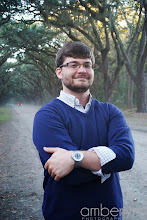William Butler Yeats wrote his poem, “No Second Troy,” about the want for a connection to Maude Gonne that he, or any other man, could never have. Many other men wrote about Gonne including the critic M. L. Rosenthal. Gonne had committed her life to politics instead of love, and it seemed impossible for her to have a relationship build out of love and desire for her mate (1115). Her life was consumed by her fervent patriotism, and declined Yeats offer of marriage and instead married a soldier (1115). Yeats includes in his poem many allusions to her fierce political involvement and also allusions to Helen of Troy. The title of the poem shows Yeats wanting to not start a second Trojan war over this beauty. It would seem to be impossible, considering Yeats was not jealous of another man, but of Gonne’s political fanaticism (1115).
Yeats begins the poem asking “[w]hy should I blame her that she filled my days / [w]ith misery” (1-2). The next few lines include a series of questions heavily focusing on Gonne’s political influence. From the poem, the reader can gather and assume a few things about Gonne. She was, in fact, heavily associated with politics. She also seemed to have talked to people about rising up against others and revolting (“hurled little streets upon the great” (4)), or at least promoting the idea. She had times with the Easter Rising, so she must have been behind the idea in some fashion (1115). This poem was written eight years before the actually event, so she must have been connected to the idea sometime before or been in an activist group. Yeats mentions “[h]ad they but courage equal to desire” in regards to the “little streets,” which shows that maybe she was more of an influence than the reader thinks (4-5). Perhaps Yeats gives her more credit than is due, since he was full of this unrequited love.
Yeats continues with more questions in the second half. He focuses on what could have made this ok for her to do. He asks “[w]hat could have made her peaceful with a mind / [t]hat nobleness made simple as a fire?” (6-7). I will admit that I do not understand what Yeats is asking. Is the same thing that made her peaceful the same thing that made nobleness simple as fire? Her beauty is also a part of the discussion, since she was very beautiful as well. “With beauty like a tightened bow,” Yeats says, “a kind / [t]hat is not natural in an age like this” (8-9). Yeats praises her beauty, almost calling it other worldly. He ends by asking what else could she have done, being so beautiful and easy about the situation. She was absorbed by her patriotism and had to weigh between politics and her relationships. So “[w]as there another

2 comments:
Corbin,
Good focus and commentary in this post on Yeats's "No Second Troy." You provide some good passages from the text to explore, and you make some insightful connections between the poem and the poet's life (and love life). You speculate about a connection of Gonne to the Easter rising; note that her estranged husband, John MacBride, was one of the ringleaders in the revolution (Yeats characterizes him in "Easter 1916" as a "drunken, vainglorious lout." I don't quite get your claims about Yeats not wanting to declare a second Trojan war on her, though. Also, there are numerous minor errors in wording and syntax--be sure to proofread more carefully.
I think maybe what he means when he asks, "[w]hat could have made her peaceful with a mind / [t]hat nobleness made simple as a fire?" is that some people are not meant to live peacefully: they are destined for much more, but also for much less since they suffer for it. With Helen, it was her beauty and her nobleness--her status as a high-ranking member of society--that made her "simple as a fire" and precluded a peaceful mind and life. With Maud, as you suggest, it may be her political ambitions that render her incapable of anything more or less than the simplicity and beauty of a fire.
Post a Comment